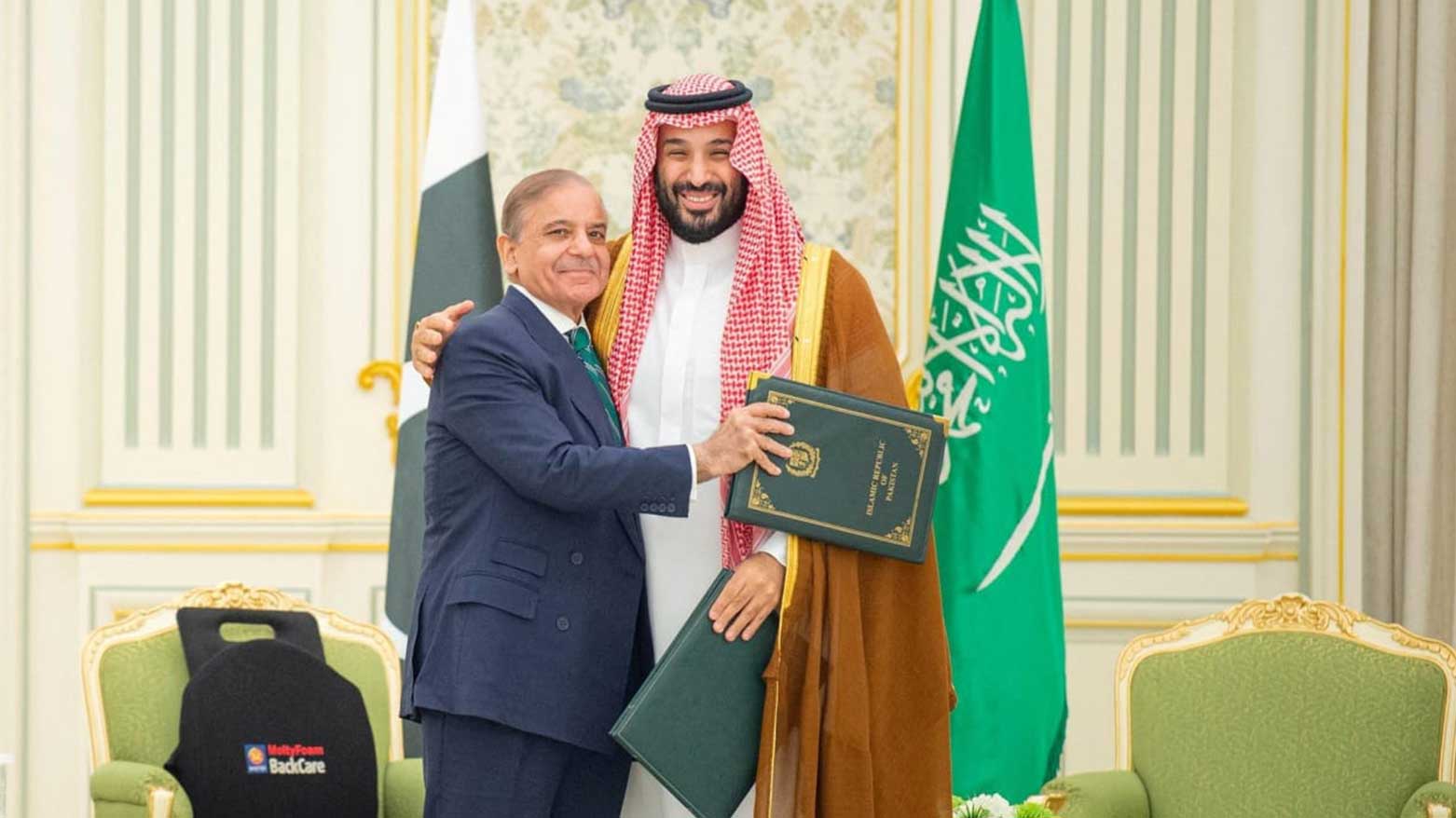Pakistan, Saudi Arabia Sign Landmark Defense Pact Amid Regional Upheaval
New pact binds Riyadh and Islamabad in mutual defense, vowing joint response to any attack on either nation

ERBIL (Kurdistan24) — Pakistan and Saudi Arabia signed a sweeping strategic defense pact on Wednesday, declaring that an attack on either nation would be treated as “an aggression against both,” in a move signaling deepening military ties amid growing regional volatility.
The agreement, signed in Riyadh by Saudi Crown Prince Mohammed bin Salman and Pakistan’s Prime Minister Shehbaz Sharif, pledges to bolster defense cooperation and strengthen joint deterrence capabilities.
“This agreement aims to develop aspects of defense cooperation between the two countries and strengthen joint deterrence against any aggression,” the Saudi Press Agency reported, emphasizing the pact’s collective security principle.
The signing comes just days after an Israeli strike in neighboring Qatar targeted Hamas leaders, rattling Gulf states that have traditionally relied on Washington for their security umbrella.
HRH the Crown Prince and the Prime Minister of Pakistan sign the Strategic Mutual Defense Agreement. pic.twitter.com/JMJSaqaKUj
— Foreign Ministry 🇸🇦 (@KSAmofaEN) September 17, 2025
Escalating Regional Tensions
The Saudi-Pakistani pact also follows one of the most dangerous flare-ups in South Asia in decades. In May, Pakistan and India engaged in a four-day conflict involving missile, drone, and artillery fire, leaving more than 70 dead on both sides.
The clashes, the deadliest since the 1999 Kargil War, erupted after a shooting attack on tourists in India triggered retaliatory military action.
Indian Prime Minister Narendra Modi had been on a visit to Saudi Arabia in April when the violence erupted, forcing him to cut short his trip.
Riyadh later played a behind-the-scenes role in easing hostilities between the two nuclear-armed neighbors, underscoring its rising diplomatic clout in the region.
Energy and Economic Dimensions
Saudi Arabia’s ties with India remain vital, particularly through energy. India, now the world’s most populous nation, is heavily dependent on oil imports, with Saudi Arabia ranking as its third-largest supplier. New Delhi has sought to maintain steady relations with Riyadh even as Pakistan consolidates its long-standing alliance with the kingdom.
For Islamabad, the pact carries both security and economic significance. Over 2.5 million Pakistanis live and work in Saudi Arabia, sending home vital remittances, while Riyadh has repeatedly provided financial lifelines to help stabilize Pakistan’s troubled economy.
Strategic Implications
The defense pact underscores Saudi Arabia’s push to diversify its security partnerships at a time when Gulf monarchies are questioning the reliability of U.S. guarantees.
It also strengthens Pakistan’s role as a key Muslim-majority military power with nuclear capabilities, offering Riyadh a partner capable of providing deterrence against regional threats.
Military experts note that the deal could also complicate Saudi Arabia’s balancing act between India and Pakistan, two bitter rivals whose enmities continue to destabilize South Asia.
Yet for both Islamabad and Riyadh, the agreement represents a message of unity and mutual protection in a region increasingly defined by shifting alliances and unpredictable conflicts.
Strained Saudi-Iran Relations and Regional Fallout
The Saudi-Pakistani defense pact also carries weighty implications for Riyadh’s delicate relationship with Iran. Despite restoring diplomatic ties in 2023 after years of hostility, Saudi Arabia and Iran share a long history of rivalry marked by proxy confrontations, including Iran’s backing of the Houthi rebels in Yemen who directly targeted Saudi cities and oil facilities during years of conflict.
This new pact signals Riyadh’s determination to strengthen its deterrence posture, suggesting that while dialogue with Tehran continues, Saudi leaders remain wary of Iran’s regional ambitions.
The agreement could alter the security landscape of the Middle East by emboldening Saudi Arabia to take a firmer stance against Iran’s network of Shiite proxies, from the Houthis in Yemen to Hezbollah in Lebanon and various armed groups in Iraq and Syria.
By anchoring its defense strategy to a nuclear-armed military power like Pakistan, Riyadh is effectively signaling that it will not face these threats alone, potentially recalibrating Iran’s calculations and raising the stakes in an already volatile regional balance of power.
Nuclear Ambitions and Regional Shockwaves
The Saudi–Pakistani pact raises speculation that Islamabad could extend a nuclear umbrella — or even transfer sensitive technology — to Riyadh. While the deal does not mention such cooperation, Saudi financial support for Pakistan’s past nuclear efforts and Islamabad’s history of proliferation have fueled concerns.
Any transfer would undermine the global non-proliferation regime, alarm Israel, and heighten fears of a Gulf arms race, complicating Saudi Arabia’s position as a backer of the two-state solution for Palestine.
For Iran, a potential Saudi–Pakistani nuclear link would be a strategic nightmare, likely prompting Tehran to accelerate its own programs and deepen reliance on proxies such as Hezbollah, Iraqi militias, and Yemen’s Houthis.
Even without an explicit transfer, the pact shifts deterrence dynamics, signaling that Riyadh can count on nuclear-armed Pakistan, which could intensify proxy wars and further polarize the Middle East.